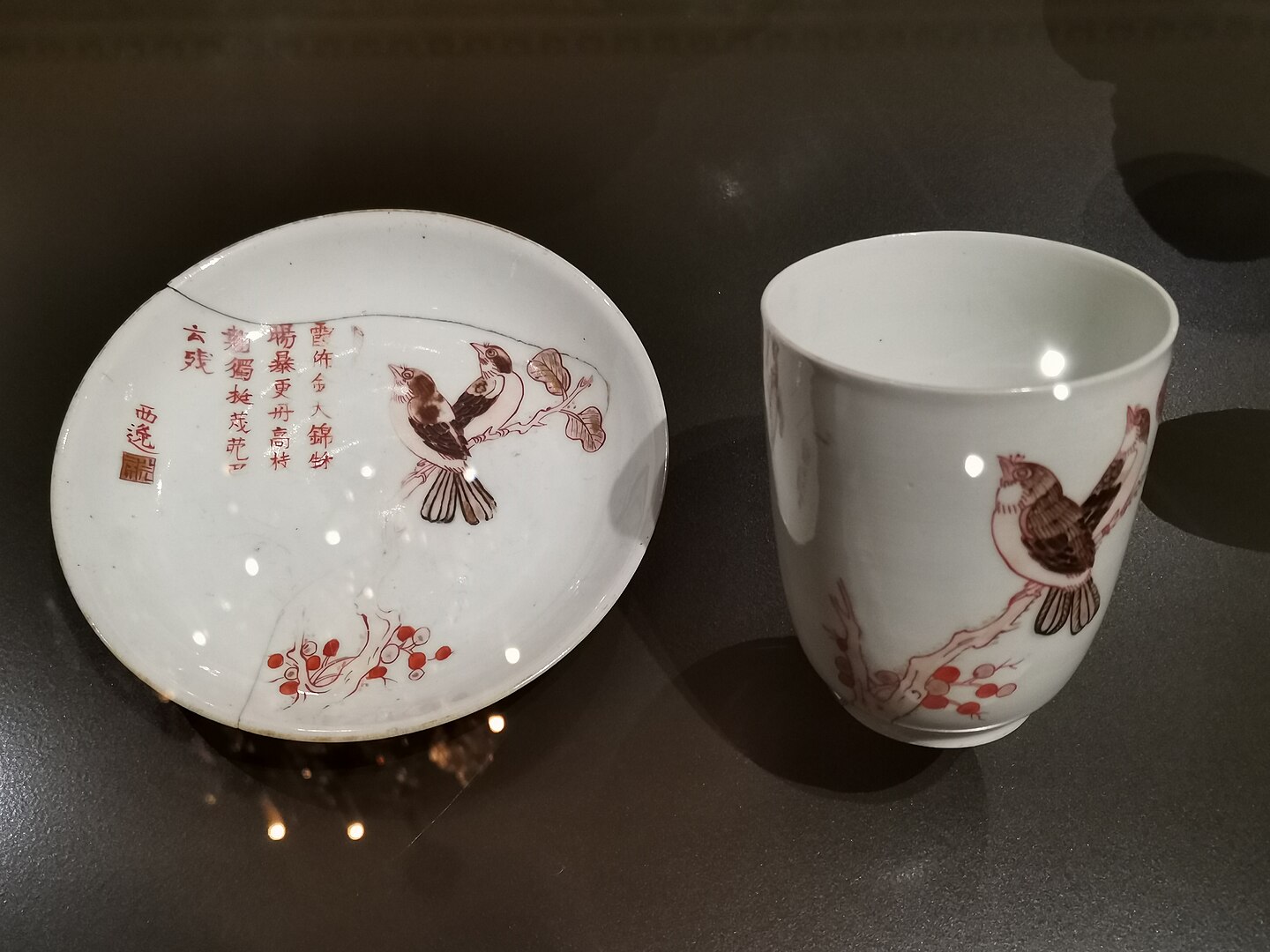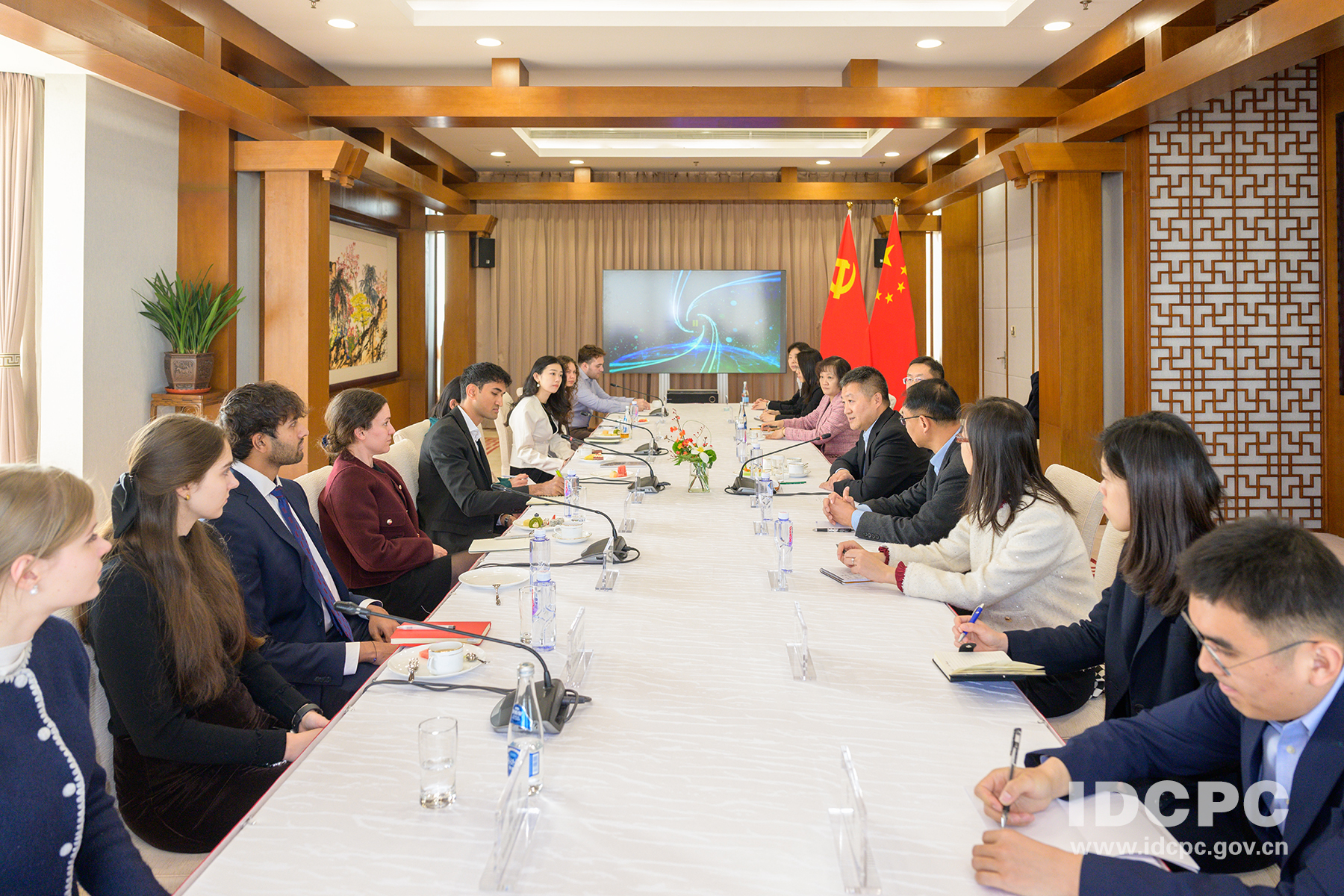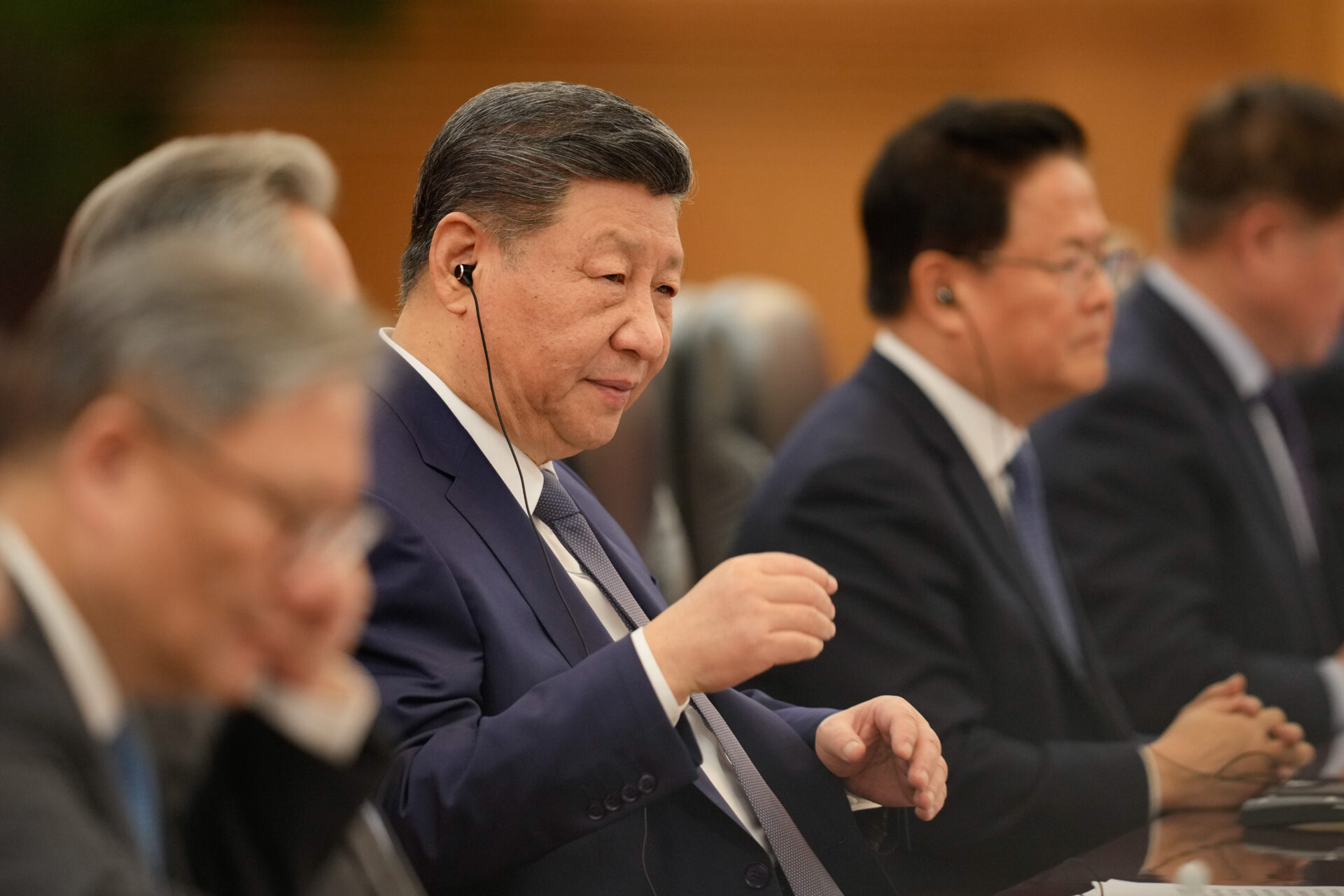
Multipolar Mirage: The PRC’s Pivot to Europe
Multipolar Mirage: The PRC’s Pivot to Europe
Executive Summary:
- The People’s Republic of China’s (PRC) is looking to promote an “equal and orderly multipolar world.” Part of this entails encouraging strategic autonomy for European nations and the creation of a “non-American West” which is more amenable to PRC interests. High-level diplomatic engagements with European leaders emphasize cooperation on global challenges and multilateralism, contrasting with the PRC’s portrayal of the United States as an obstacle to global stability.
- In France last week, Xi appealed to French pride in their civilization and strategic autonomy as the two countries celebrated 60 years of diplomatic ties. French political elites appear receptive to this messaging, and President Macron in particular has frequently sought to engage with the PRC.
- Beijing also desires to reset strained relations one of its largest trading partners—the European Union—through meetings with the bloc’s various heads of state, especially that of Germany and France. This shift is driven by the need to sustain access to critical markets and technologies amid perceived US-led efforts to suppress the PRC’s development.
- European leaders, including Scholz and Macron, have shown a willingness to engage with Beijing, in part to seek assistance in ending Russia’s invasion of Ukraine. This plays to the PRC’s increasing desire to be seen as a mediator in global conflicts, but given the current Sino–Russian relationship, such an approach is likely misguided.
Over the past several years, the foreign policy of the People’s Republic of China (PRC) has centered on the Global South, the primary audience for the “three global initiatives (三大全球倡议)” introduced by core leader Xi Jinping from late 2021 through early 2023 (People’s Daily, January 17). This year, however, much of the PRC’s high-level diplomacy has focused on Europe, as Beijing seeks to maximize the willingness of Germany, France, and other European states to reset ties that have become strained over issues related to trade, human rights, and—most notably—the PRC’s support for Russia throughout its war on Ukraine. Beijing’s diplomatic push coincides with continued transatlantic trade tensions and growing European uncertainty over the staying power of the United States as a world leader (GMFUS, September 23, 2023). Shoring up ties with Europe is essential for the PRC to sustain access to critical markets and technologies amid what Beijing views as US-led efforts to suppress its technological and economic development (Xinhua, February 20, 2023). More broadly, the PRC uses these diplomatic exchanges to promote European strategic autonomy as an essential pillar of a post-American, multipolar world order.
In May, Xi made his first visit to Western Europe in five years, traveling to France before visiting Hungary and Serbia (People.cn, May 6). Xi’s visit, which was organized around the 60th anniversary of the establishment of official relations between the PRC and France, builds on the PRC’s recent appeals to European states’ sense of strategic autonomy at a moment of global and regional uncertainty. Beijing has seized on this anniversary in its recent diplomatic engagement with Paris, emphasizing the enduring relevance of Mao Zedong and Charles De Gaulle’s willingness to defy Cold War bloc politics to establish relations (see China Brief, December 1, 2023). The none-too-subtle message here is that while the United States remains mired in Cold War-style geopolitical machinations, Europe and the PRC can remain partners, working together to bridge the East–West divide, avert a new Cold War, address transnational challenges, and build a multipolar world.
Xi Promotes Engagement With France, Germany
At a welcome banquet hosted by French President Emanuel Macron, Xi stated that “both countries are committed to the spirit of independence” and that DeGaulle’s decision to open relations with the “New China” was “not easy against the backdrop of the Cold War” (People.cn, May 6). This theme fed into Xi’s encouragement for France to continue following its own course as Paris once again appears to be diverging from Washington on its policy toward the PRC. At the close of the visit, Macron and his wife, Brigitte, hosted Xi and his wife, Peng Liyuan (彭丽媛), for a private gathering in the Pyrenees, a location that holds deep personal significance for the French President as the birthplace of his maternal grandmother. There in the mountains, Xi played to his host’s pride in France as a great civilization and cultural center of the Western world, stressing that “although the Chinese and French civilizations, one in the East and the other in the West, have different values and social systems, both are committed to inter-civilization exchanges and mutual learning” and “through dialogue and cooperation, they could make new contributions to world peace and development and human progress” (PRC Ministry of Foreign Affairs [MFA], May 8). This messaging may be particularly appealing to Macron at a moment when Paris has lost its traditional role as an interlocutor between Russia and the West.
Xi’s European tour follows a visit by German Chancellor Olaf Scholz and a high-level business delegation to Chongqing, Shanghai, and Beijing in mid-April (China News, April 15). In his talks with Xi, Scholz did seek to quietly address structural issues in Europe’s economic relations with the PRC, stressing the need for fair trade and reciprocity. In general, however, he came across as soft-pedalling concerns over Chinese overcapacity and reduced market access (CCTV, April 17; MERICS, April 18). PRC state media was quick to highlight that despite Europe’s recent “de-risking” push, top executives from major German companies such as BMW, Mercedes-Benz, and Siemens were “fiercely competing” for spots on Scholz’s delegation, and noted that German direct investment in the PRC hit a record high last year (CCTV, April 15). During his visit, Scholz also opened the door for Beijing to play a greater role in mediating the Russia–Ukraine War.
PRC Pushes European Strategic Autonomy
The Quest for an “Equal and Orderly Mulitpolar World”
In late December 2023, the Central Foreign Affairs Work Conference called for “advancing an equal and orderly multipolar world, and universally beneficial and inclusive economic globalization (倡导平等有序的多极化和普惠包容的全球化)” (Qstheory.cn, January 24; see China Brief, April 12). This mantra has become a leitmotif of the PRC’s diplomacy in recent months. In his video remarks on the 60th anniversary of the establishment of formal PRC–France ties this January, Xi stated that “China and France will continue to contribute to safeguarding world peace and stability and responding to global challenges” to advance this vision of a multipolar and globalized world (MFA, January 25).
More recently, Foreign Minister Wang Yi (王毅) told EU Foreign Policy Chief Josep Borrell at the Munich Security Conference that both the PRC and Europe are committed to multilateralism, and expressed a desire to work together to “promote an equal and orderly multipolar world in which every country has its place” (MFA, February 17). Wang invoked the same phrase at a meeting two days later with Spanish Prime Minister Pedro Sanchez, noting that “China views the EU as an important force in the multipolar world” (Xinhua, February 20). In talks with Scholz on April 16, Xi asserted that “China and Germany have much in common on the issue of world multipolarity” (People.cn, April 16). Latterly, during his talks with Macron on May 7, Xi stated that both the PRC and France must work together to prevent a “new Cold War (新冷战)” or “camp confrontation (阵营对抗),” jointly cooperating to “advance an equal and orderly shift to a multipolar world” (Xinhua, May 7).
The Idea of the Two Wests
Beijing still considers Europe and its leading states, particularly France and Germany, as critical to achieving genuine multipolarity. Importantly, Europe has some but not all elements of a global power center, including several that the PRC lacks (e.g., a truly global currency). A transatlantic rupture and the emergence of Europe as a weak but independent pole in a multipolar world would accelerate Xi’s quest to reshape the world order (not least by increasing European dependence on the PRC). This translates into an official narrative that frames the “American West” as an obstacle to global stability while characterizing the broader “West,” especially Europe, as a key pillar of a revised multipolar world order.
As competition between the United States and the PRC has intensified, both official and popular rhetoric in the PRC increasingly differentiates the Unites States and its closest allies from the West at large. A November 2022 People’s Daily article by Wang Qianrong (王乾荣) observes that “as the world is undergoing profound changes, so are people’s vocabularies, with the phrase ‘American West (美西方)’ becoming a buzzword” (People’s Daily, November 4, 2022). Per the article, the term connotes a “West” that both encompasses and is bigger than the United States, while also reflecting that country’s place as the dominant power in this grouping. Wang explains that the term “American West” summarizes “collusion between the United States and other Western states on the issue of China.” For example, a recent Xinhua commentary states “Sinophobia (恐华症)” has flared up again in the “American West,” where “national security” is used as a pretext to bar “superior Chinese products, from electric vehicles to cranes” (Xinhuanet, March 16).
The concept of an “American West” that relentlessly seeks to suppress the PRC grafts on to other long-running themes in PRC messaging and propaganda. These include a focus on the United States’ “Cold War Mentality (冷战思维)” and Washington’s penchant for building exclusive “small cliques (小圈子)” such as NATO and the G7 to sustain its “hegemony” (The Paper, July 17, 2023; People’s Daily, May 13, 2023; Guangming Daily, August 17, 2022). In 2021, Wang Honggang (王鸿刚), Vice President and Director of the Institute for American Studies at the China Institute of Contemporary International Relations, a think tank under the Ministry of State Security, claimed that while the United States appears militarily strong, it is actually weak as it must rely on organizing “small cliques” to sustain power (People.cn, April 12, 2021). A February 2023 report by Xinhua’s in-house think tank on “US Hegemony and its Perils” castigated Washington for developing a “hegemonic playbook to stage ‘color revolutions,’ instigate regional disputes, and even directly launch wars under the guise of promoting democracy, freedom, and human rights” (Xinhua, February 20, 2023).
France: An Alternative Model for the West
The counterpoint of the “American West” for the PRC are those Western countries that exercise “strategic autonomy.” In practice, Beijing appraises states’ “strategic autonomy” based on their relative willingness to take actions contrary to US policy. Perhaps no Western state accords with Beijing’s conception of strategic autonomy as much as France, which has long prized its freedom of action vis-à-vis the United States and NATO.
Under Macron, France has been willing to play ball with Beijing. Last April, with US–China relations still frosty following the spy balloon fracas, Macron visited the PRC. During his visit, the two countries agreed to a sweeping 51-point joint statement on “opening new prospects in bilateral relations” and “fostering momentum in China–EU relations” (MFA, April 7, 2023). The statement not only calls for greater economic, technological, and environmental cooperation but also greater security engagement (China Brief, April 14, 2023). In April this year, military-military engagement between France and the PRC, which has persisted despite fits and starts in US–China military diplomacy, was deepened and further institutionalized with an agreement to establish an “inter-theater cooperation and dialogue mechanism” between the PLA Southern Theater Command and the French military’s Pacific Ocean and Polynesian maritime zones (China Military Online, April 26).
During Xi’s May visit, Beijing and Paris issued a Joint Statement on the Situation in the Middle East, stating that as permanent United Nations Security Council members, the two countries are “working together to find constructive solutions, based on international law, to the challenges and threats to international security and stability,” and calling for an immediate cease-fire in Gaza (China Daily, May 7).The joint statement provides a public diplomacy boost to the PRC’s efforts to bill itself as a credible security leader in the Middle East through the Global Security Initiative and a series of proposals for addressing regional security conflicts (China.org.cn, February 28; MFA, September 21, 2022).
Indeed, the sense that the PRC is a partner, albeit a prickly one, still permeates much of the French elite. This was encapsulated by Minister for the Economy and Finance Bruno Le Maire’s remarks at Davos last year: “China cannot be out, China must be in. This is a difference of view that we have between the [United States] and Europe” (WEF, January 20, 2023). Such sentiments were echoed again ahead of Xi’s visit to France this May, with a French official telling Politico EU that “We have our own policy on China which is different to the public policy of the [United States].” (Politico EU, April 30).
Conclusion
Early in the Trump administration, many postulated that the PRC would exploit heightened transatlantic friction, but Beijing was ill-positioned to capitalize. Intensification of US–China competition coincided with the end of the China–Europe honeymoon in the late 2010s. Europeans, who once viewed engagement with the PRC as overwhelmingly positive, began to face up to the negative elements of the PRC’s authoritarian system, including its mercantilist economic practices and extensive repressive apparatus highlighted by the mass internment of Uyghurs in Xinjiang, the crackdown on Hong Kong’s pro-democracy movement, and the heavy-handed “zero-COVID” policy. In 2019, Macron, a general proponent of engagement, went so far as to declare and end to the era of “European naïveté” on the PRC (Nikkei Asia, March 23, 2019). This shift was reflected in the EU’s revised official stance that the country was now “a partner for cooperation, an economic competitor, and a systemic rival” (EU External Action Service, December 7, 2023).
A full-on transatlantic rupture did not occur during Trump’s term. In 2024, however, circumstances are fundamentally different. As the Russia–Ukraine war rages on, a Europe faced with diminished or curtailed US support may become increasingly desperate for some sort of compromise with Russia using the PRC as an intermediary. Despite supporting Russia throughout the war, the PRC might still leverage European desperation to position itself as an “honest broker” in the conflict (China Brief, March 11, 2022; France 24, April 12). Some European leaders already appear to be entertaining such fancies. Scholz justified his recent visit to the PRC as an effort to achieve a “just peace” in Ukraine (Le Monde, April 16). At the end of his visit, Scholz said that the PRC’s word “carries weight in Russia” and relayed that he asked Xi to influence Moscow to “end this terrible war” (DW, April 16).
As they engage with Beijing, European leaders must remember that Xi’s vision of a multipolar world differs fundamentally from their own. While Europe pursues international cooperation for its own sake and to manage transnational challenges, for the PRC, the emergence of a multipolar world is something more. It is a springboard to realizing Xi’s Sino-centric vision of a “community with a shared future for mankind.”


